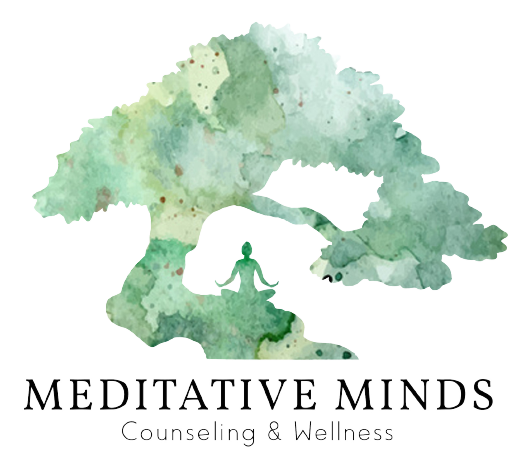Traditional therapeutic methods often focus on specific symptoms or isolated aspects of an individual’s life. However, a growing number of people are turning to holistic therapists, drawn to the idea of a more inclusive and integrative approach to healing.
In this blog post, we’ll explore what sets holistic therapists apart in individualized treatment and why this approach is gaining popularity.
Understanding Holistic Therapy
Holistic therapy, synonymous with holistic healing or alternative therapy, encompasses a comprehensive approach that acknowledges the interconnected facets of an individual—mind, body, spirit, and emotions—in the pursuit of peak health and well-being.
Diverging from conventional therapeutic approaches that often focus on isolated symptoms, holistic therapy aims to unravel the underlying causes by scrutinizing all aspects of a person’s life.
Holistic therapists adhere to the belief that genuine healing is attained through the attainment of balance and harmony across diverse life domains. This holistic perspective underscores the commitment of therapists to providing a thorough and integrated approach to individualized care.
-
Individualized Assessment
One key aspect that sets holistic therapists apart is their commitment to conducting thorough and individualized assessments. Rather than relying solely on standardized diagnostic tools, holistic therapists take the time to understand the unique background, lifestyle, and experiences of each client. This in-depth assessment allows them to tailor their approach to address the specific needs and challenges faced by the individual.
Holistic therapists often explore various facets of a person’s life, including their relationships, work environment, daily routines, and personal beliefs. By gaining a comprehensive understanding of the client’s life, holistic therapists can identify interconnected factors that may be contributing to their challenges. This personalized approach enables therapists to create targeted and effective treatment plans.
-
Integrative Modalities
Holistic therapists employ a diverse range of therapeutic modalities that go beyond traditional talk therapy. These may include alternative and complementary therapies such as acupuncture, meditation, yoga, nutrition counseling, and energy healing. By integrating various modalities, holistic therapists can address the diverse needs of their clients, recognizing that different individuals respond to different approaches.
For example, a client struggling with anxiety might benefit from a combination of mindfulness meditation, breathwork, and cognitive-behavioral techniques. Holistic therapists are trained to adapt their methods based on the client’s preferences, cultural background, and personal comfort levels, creating a more inclusive and effective treatment experience.
-
Mind-Body Connection
Holistic therapists emphasize the importance of the mind-body connection in understanding and addressing mental health issues. This approach recognizes that emotional and psychological well-being are intricately linked to physical health. Holistic therapists help clients explore how lifestyle choices, diet, exercise, and stress management impact their overall well-being.
By fostering awareness of the mind-body connection, holistic therapists empower clients to make positive lifestyle changes that contribute to their healing journey. This focus on prevention and self-care is a distinctive feature of holistic therapy, setting it apart from approaches that solely address symptoms or immediate concerns.
-
Holistic Goal Setting
Rather than focusing solely on symptom relief, holistic therapists engage clients in the process of setting holistic goals. These goals encompass not only mental and emotional well-being but also physical health, relationships, and personal growth. Holistic goal setting encourages individuals to envision their ideal state of well-being and work towards achieving a more balanced and fulfilling life.
Holistic therapists collaborate with clients to establish realistic and achievable goals that align with their values and aspirations. This collaborative goal-setting process enhances client motivation and commitment to the therapeutic journey. Clients often report a greater sense of agency and empowerment as they actively participate in shaping their treatment plan.
-
Emphasis on Preventive Care
Holistic therapists recognize the importance of preventive care in maintaining long-term well-being. Instead of waiting until symptoms escalate, holistic therapy encourages individuals to adopt proactive measures to enhance their overall health. This preventive approach involves identifying potential stressors, triggers, and imbalances before they manifest as more significant issues.
Through education and guidance, holistic therapists equip clients with the tools and strategies needed to prevent the recurrence of challenges and maintain a state of balance. This emphasis on preventive care aligns with the holistic philosophy of treating the whole person, fostering resilience, and promoting sustained well-being.
-
Emphasis on Empowerment and Self-Discovery
Holistic therapists view individuals as active participants in their healing journey. Instead of adopting a paternalistic approach, therapists collaborate with clients to empower them in taking charge of their well-being. This emphasis on empowerment is rooted in the belief that individuals possess the innate capacity for healing and self-discovery.
Holistic therapy sessions often involve engaging in open and reflective conversations, encouraging clients to explore their thoughts, emotions, and behaviors. Therapists guide individuals in developing a deeper understanding of themselves, helping them uncover patterns that may contribute to their current challenges.
-
Time and Attention to Each Individual
Holistic therapy sessions typically allow for more extended periods of time compared to conventional medical appointments. This extended time frame enables therapists to delve deeply into the complexities of an individual’s life and health, fostering a more profound therapeutic relationship.
The emphasis on providing personalized and individualized care means that holistic therapists can address the unique needs and concerns of each client. This personalized approach contributes to a more thorough understanding of the individual, allowing for targeted interventions that consider the person as a whole.
Conclusion
In a world where individuals are increasingly seeking personalized and comprehensive approaches to healing, holistic therapists stand out for their commitment to individualized treatment.
By conducting thorough assessments, integrating diverse modalities, emphasizing the mind-body connection, setting holistic goals, and promoting preventive care, holistic therapists address the root causes of issues and empower clients to achieve lasting well-being.
As the demand for holistic therapy continues to grow, it reflects a broader shift in how individuals approach their mental, emotional, and physical health.
Holistic therapy offers a holistic and integrated path to healing, emphasizing the interconnectedness of various aspects of life. In embracing wholeness, individuals embark on a journey towards self-discovery, balance, and sustainable well-being with the guidance of holistic therapists.


